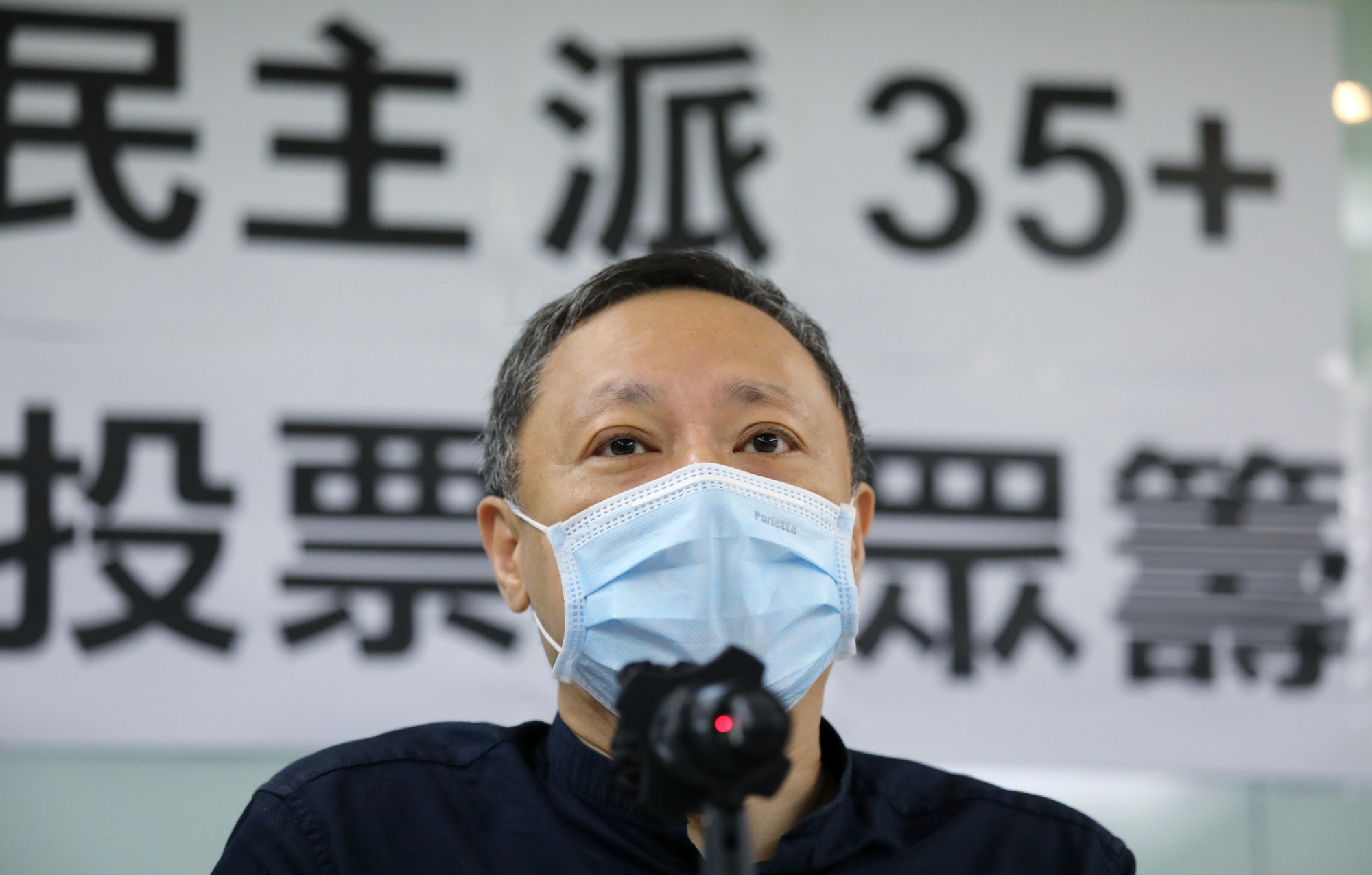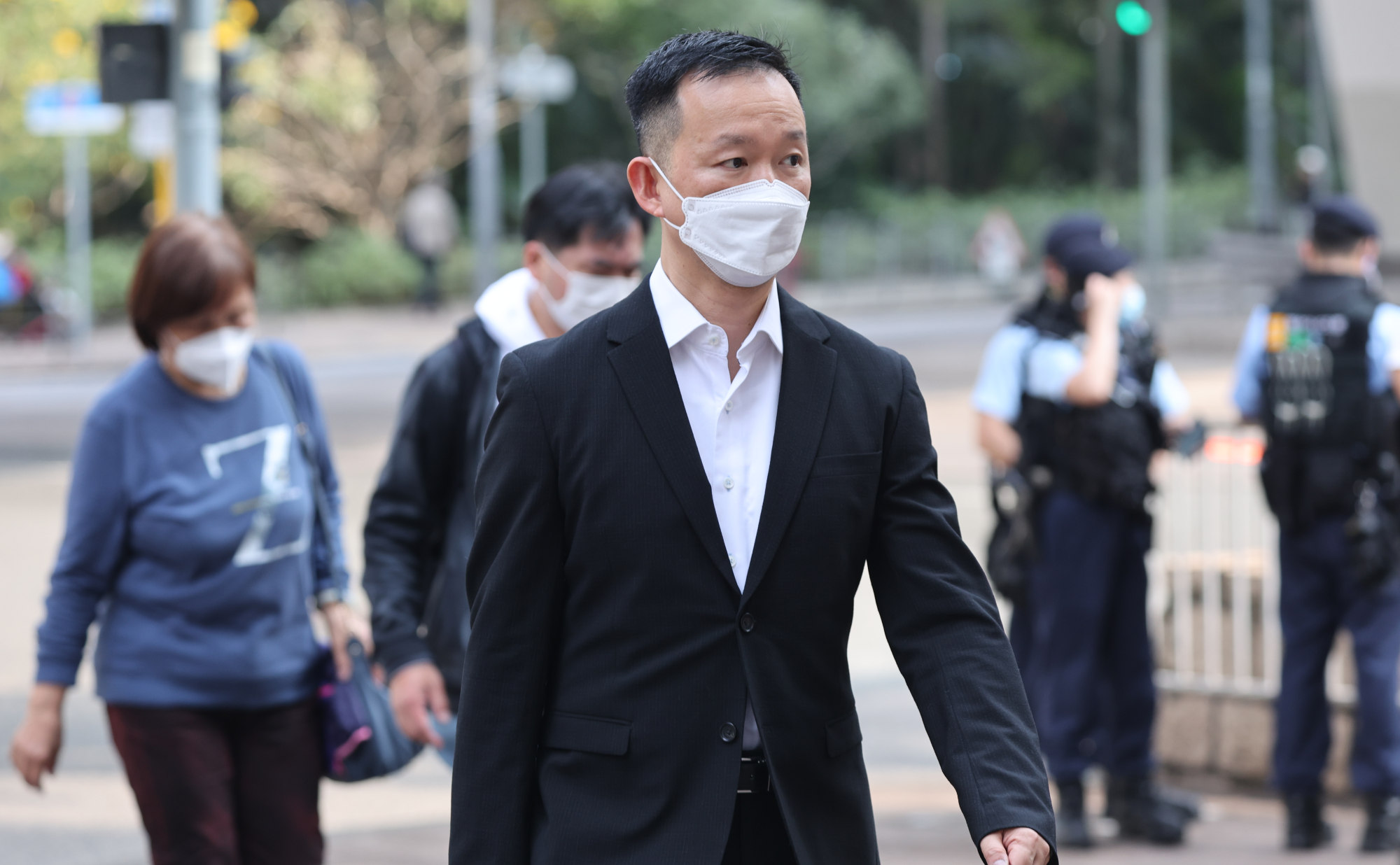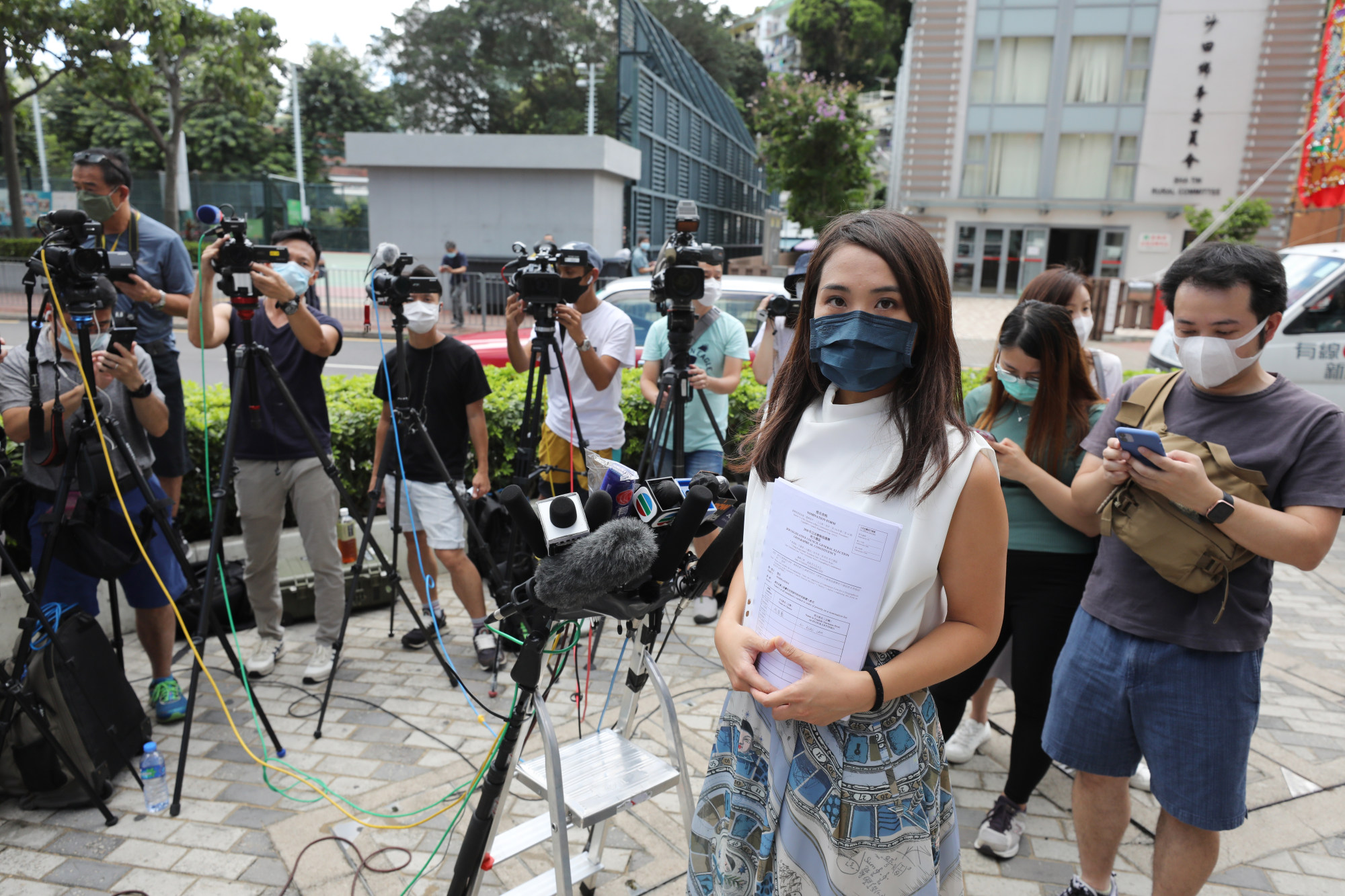Hong Kong 47: who are the key defendants in national security trial over Legco primary and what do they claim?
Here is a closer look at the jury-free trial unfolding before three judges hand-picked by the city leader to oversee national security proceedings, and what to expect going forward.

1. How did prosecutors establish their allegations?
They argued the 47 opposition figures had conspired to win control of Legco and paralyse the government by indiscriminately vetoing the fiscal budget.
The Basic Law, the city’s mini-constitution, provides that the chief executive must resign if the same financial blueprint is rejected twice by the legislature.
The prosecutors relied on Tai’s articles about “mutual destruction”, a plan they said was meant to eventually implicate Beijing. Speeches made at various press conferences and in election forums, as well as pledges signed by the primary’s participants, were also highlighted in court.

Thirty-three defendants signed an online declaration titled “Resolute Resistance, Inked without Regret”, which the prosecution alleges committed them to blocking government budgets to force authorities to agree protesters’ demands during the 2019 social unrest, sparked by a now-withdrawn extradition bill.
Thirteen of the defendants signed a further joint statement, in which they allegedly made similar promises.
All primary candidates, including 42 of the defendants, submitted nomination forms for the unofficial poll, which confirmed they would act in line with a “consensus” to force the government to accede to protesters’ demands.
Three primary organisers, Au Nok-hin, Andrew Chiu Ka-yin and Ben Chung Kam-lun, testified for the prosecution in exchange for shorter sentences.

Court told Hong Kong opposition primary became ‘insane’ bid to oust city leader
2. How did the 16 defendants present their cases?
Ten of the 16 defendants, all of whom were primary contestants, chose to give evidence in court. All of them denied reaching a prior agreement to block government budgets, but some displayed a firmer stance than the rest when asked about their public statements in the past.
Activists Owen Chow Ka-shing and Winnie Yu Wai-ming and former district councillor Sze Tak-loy said they would reject the budgets as long as the government refused to agree to protesters’ demands, which included introducing universal suffrage.
Unofficial primary organiser blamed for nurturing Hong Kong ‘radical’ activists
Journalist-turned activist Gwyneth Ho Kwai-lam insisted she had a “constitutional duty” to veto the budgets, not as an attempt to coerce the government, but because of concerns that authorities had ways to bypass legislative scrutiny while seeking funding approval, thereby creating what she called a “fiscal black hole”.
Former lawmaker Raymond Chan Chi-chuen, and ex-district councillors Kalvin Ho Kai-ming, Michael Pang Cheuk-kei, Tat Cheng Tat-hung and Lee Yue-shun said they opposed an indiscriminate vote against the budgets.
Lawrence Lau Wai-chung, a former district councillor and barrister by profession, said he was more concerned about a “political suicide” by not pledging to reject the financial proposals.

When asked about their support for resistance, some of the accused claimed they had merely hoped to increase their chances in the primary with the use of “election rhetoric”.
Sze, who was chairman of the Hong Kong Association for Democracy and People’s Livelihood, said he blurted out a promise to block all government bills during an election forum under pressure.
Tat Cheng Tat-hung, who was then affiliated with the Civic Party, said he was simply adopting the same stance as his fellow party members.
Hong Kong may have been ‘gravely affected’ by unofficial Legco primary, court told
Others appeared more resolute. Yu, for instance, said she had exaggerated in her speeches to show her determination in challenging authorities.
Gwyneth Ho described the Chinese Communist Party as a totalitarian regime, saying this was widely regarded as a consensus in academia.
Those who chose not to testify were former lawmakers Helena Wong Pik-wan, Lam Cheuk-ting and “Long Hair” Leung Kwok-hung, ex-district councillors Clarisse Yeung Suet-ying and Ricky Or Yiu-lam, and Gordon Ng Ching-hang, who allegedly coordinated the primary.

3. What can we expect after the trial is over?
High Court justices Andrew Chan Hing-wai, Alex Lee Wan-tang and Johnny Chan Jong-herng are expected to deliver their ruling in three to four months’ time after the defence makes its final submissions. But the panel added there was no guarantee the court could complete their work on time.
After the verdict, the court is expected to set dates for hearing pleas for mitigation from any convicted, including the 31 accused who have decided to admit liability.
The defence is also expected to make submissions on the level of culpability of their clients and the appropriate sentencing range to be applied.

The national security law adopts a three-tier system in classifying offenders found guilty of subversion, with a “principal offender” liable to a minimum sentence of 10 years in jail.
A sentence of three to 10 years applies to an offender who “actively participates in the offence” and lesser penalties are for “other participants”.
Those pleading guilty are entitled to a one-third discount in sentencing, and those who assist the prosecution may be granted further remission.
Thirty-five of the 47 accused are currently remanded in custody, with some having been in prison since their prosecution in March 2021.